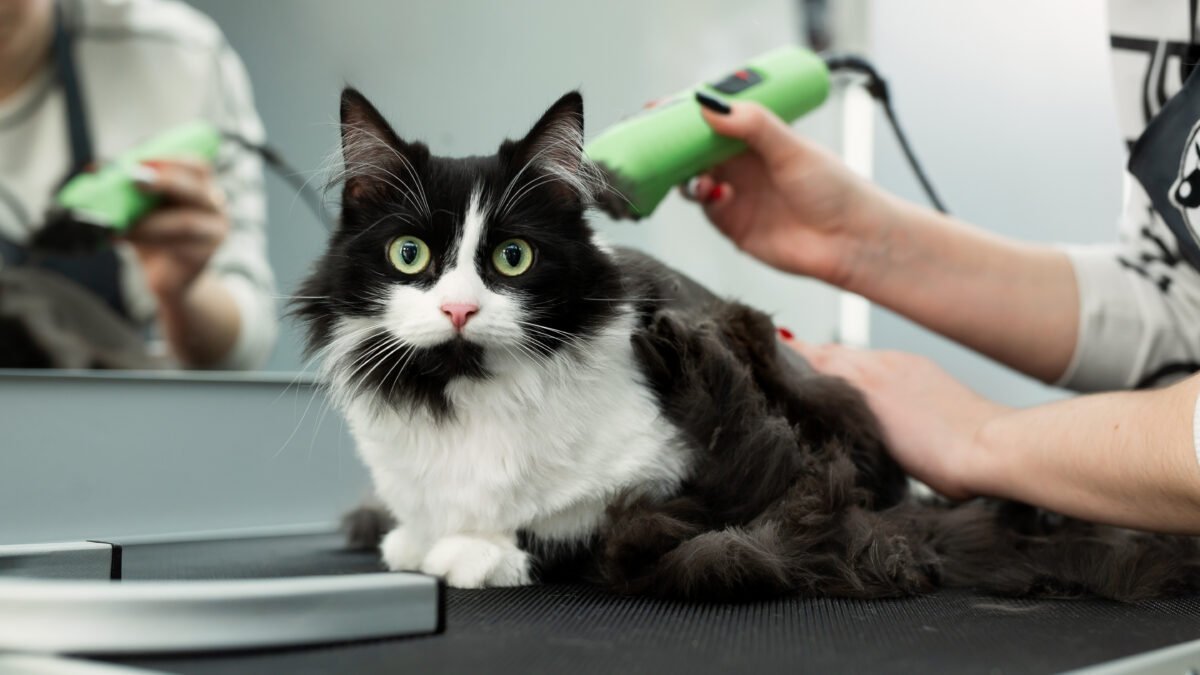
Your cat is an adorable member of the family, but they can also be a little bit of a menace. They’re constantly going after small animals, birds, and rodents to keep their prey running wild. If they weren’t so cute, it would be kind of creepy. Fortunately, though, your cat is also extremely well-adapted to its environment. They’re solitary hunters who don’t make any noise when stalking their prey or return home unless food is available. As a result of this hunting behavior and their solitary nature, your cat will act instinctively in ways that aren’t best suited to the modern domesticated way of living, such as spraying their scent over your favorite furniture. To ensure your cat’s lifest remains as stress-free as possible, it might be time for him or her to have some minor surgery. In this article, we’ll go over everything you need to know about having your kitty neutered.
What Does Neutering Do?
A neutering procedure is a minor surgery that is designed to remove the testicles of an animal. This often prevents unwanted male and female cats from mating and reproducing, causing this behavior to stop. Cat neutering is often recommended for specific reasons such as being adopted by someone with allergies, being part of a rescue organization, and/or preventing unwanted litters. An animal’s neutering procedure can also be performed if it’s not spayed or not in heat yet (to prevent pregnancy). In many cases, it’s also done when the animal is getting older to help alleviate some of their health issues caused by excessive testosterone.
How Does Neutering Work?
Neutering cats is a surgical procedure that involves clipping their testicles and removing their reproductive organs. The process itself takes about 20 minutes, and the cat will recover fully in about two weeks with no noticeable discomfort. With this procedure, your cat’s sex drive will be lowered, so they will no longer want to engage in sexual behavior, like spraying.
Is Neutering Right for My Cat?
If your cat has a higher than average amount of unwanted litters, neutering might be the best thing for your feline friend. If you’re worried about your pet’s safety, neutering can help prevent some injuries and diseases that can arise from unneutered cats. Your cat will have a calmer personality with less scratching and biting when they are neutered, which can make them better pets to have in general. If you’re concerned about the health or behavior of your current (unspayed) female cat, neutered cats are less likely to develop certain types of cancer and other diseases.
Which Cats Should Be Neutered?
Your cat will have to be at least six months old before they can undergo the procedure. For cats, neutering is usually recommended when your pet is six months or older and you’re unable to spay them. Many veterinarians will recommend it for a litter of kittens as well. If your cat has been altered, there are many health benefits associated with the procedure. It can reduce the risk of certain types of cancers and reduce aggression in some individuals. It also makes your kitty less territorial and more likely to get along with other animals. If you’re not sure whether or not it’s time for a neuter, contact your vet for advice on the matter.
The Benefits of Spaying and neutering
If your cat is spayed or neutered, there are many benefits to be had. Spaying your cat not only protects you from the risks associated with having a litter of kittens, but it also prevents unwanted pregnancy and certain types of cancers. It also helps prevent urinary tract infections, which can be very painful for cats who live in the wild. Neutering your cat means they’ll no longer wander around acting in instinctive ways that aren’t appropriate for domesticated life, such as spraying their scent over furniture. The pros of neutering and spaying include reduced risks and expenses (such as potential vet visits) and a more stress-free lifestyle for your pet.
The Risks of Spaying and neutering
The risk of neutering your cat is the most common reason why people might not have their cats spayed or neutered. One of the risks associated with having your cat spayed and neutered is that they might stop breeding. If this happens, it may be hard for you to find a new home for your pet as there will be no offspring to inherit what you’ve taught them. Another risk is that they develop behavioral changes, such as aggression, or an inability to show affection. If these risks don’t concern you, the financial benefits of neutering or spaying your cat are too great to ignore. Your cat will live longer, become healthier, and will also produce less kittens without any health complications. You won’t need to worry about paying a vet bill at all because these procedures cost nothing! If you already have a litter of kittens (or if you’re considering getting pregnant), remember that spaying and neutering make it easier for your cats to adjust after the surgery and for them to live in a stable environment with other pets. If you decide against spaying or neutering your cat, keep in mind that this decision can come back to bite you later on down the line when one of those adorable little fur babies needs some medical attention and money doesn’t grow on trees!
Pros and Cons of Cat Overpopulation
It seems pretty simple, right? Just have your cat neutered and life is good. Unfortunately, overpopulation isn’t so easy to solve and the procedure of neutering isn’t always successful. The main issue with neutering kittens at a young age is that they’re not physically able to handle the surgery. The surgery increases the risk of infection and other complications. They also run the risk of developing an enlarged prostate as they get older which can only be fixed by euthanasia. If you’re considering having your cat spayed or neutered, it’s important to know all the pros and cons before making your final decision.
Final Words: Is It Time to Neuter Your Cat?
Cat neutering is a procedure that surgically removes the sex organs of your pet. This can be done for both male and female cats, with some exceptions. The procedure is usually performed to manage certain behaviors such as spraying, mating, and fighting. It can also be done in order to prevent urinary tract infections and other undesirable medical issues like obesity. Cat neuter surgery can be done in a variety of ways, but they all have one thing in common: they involve small incisions to minimize tissue damage and pain. If you’re concerned about the health of your cat or just want to make sure that he or she remains stress-free, it might be time for them to have some minor surgery.












